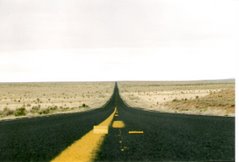 I posted this on my personal blog, here's hoping it sparks some discussion here.
I posted this on my personal blog, here's hoping it sparks some discussion here."You never want a serious crisis to go to waste," Rahm Emanuel, Obama's chief of staff, let slip just after the election. "This crisis provides the opportunity for us to do things that you could not do before," he continued. Obama has seized the opportunity, following the example of Franklin D. Roosevelt, who took full advantage of the fear created by the stock market crash of 1929 and the Great Depression.
Let's review: in October 1929, two months after the crash, unemployment peaked at 9% and then declined to 6.3% by June 1930. Congress and President Hoover then passed the Smoot-Hawley tariffs with the intention of reducing imports and protecting American jobs. By November unemployment was 11.6% and the Great Depression was beginning. FDR was elected in 1933, promising in his acceptance speech:
"Throughout the nation men and women, forgotten in the political philosophy of the Government, look to us here for guidance and for more equitable opportunity to share in the distribution of national wealth... I pledge you, I pledge myself to a new deal for the American people... This is more than a political campaign. It is a call to arms."
FDR believed that through greater central planning of the economy, more powerful unions and massive social programs he could improve the economy and dramatically shift the power balance towards statism and the Democratic party. He succeeded only in the latter. The first of FDR's New Deal interventions in the economy after taking office in 1933 was the National Industrial Recovery Act, which set prices and wages. Then came the Agricultural Adjustment Act, which allowed FDR to control prices and output of all the nation's farmers. These interventions and others, combined with anti-business rhetoric from the White House created much unpredictability in the marketplace and business investment fell off the cliff. For the first 21 months of FDR's presidency, unemployment was above 20%. In 1940, after 7 years of FDR's New Deal, unemployment was 14.3%. When WWII started, unemployment declined dramatically as millions of unemployed men went to war and FDR changed his focus from radically changing the free market to winning the war.
Not only did FDR's policies extend the Great Depression, causing much suffering, but he left us with a much, much, much larger and oppressive federal government that continues to rob us of our liberty and tax dollars to this day. He took full advantage of the crisis at hand to move the country a long way toward statism.
Obama is seeking to do the same, having learned from FDR's example. Massive deficit spending didn't help the economy when FDR tried it, but it did help the federal government usurp more power from the people, so Obama rolled out a $1 trillion "stimulus" bill. His health care "reform" is a thinly disguised attempt to force us all into socialized medicine.
Most of Obama's efforts to revive the economy focus on creating government jobs. Unfortunately, creating more government jobs does not mean more net jobs, since the money used to create them is taken out of the market, which would have been more efficient at creating jobs with that money. However, as Obama learned well while in Chicago, government jobs create a group of people that rely on the government for their paycheck and will tend to vote for people that favor their continued employment.
FDR used the Great Depression to move this country away from individual liberty and limited government and toward statism. Let's hope Obama is not as "successful."
